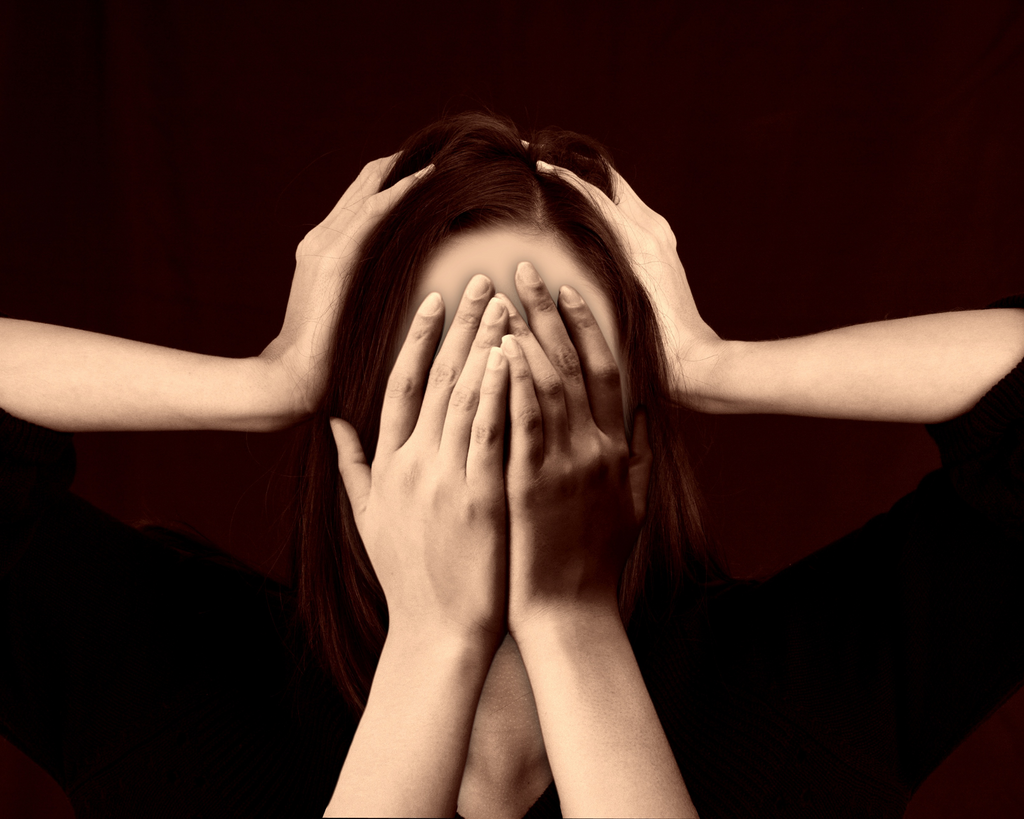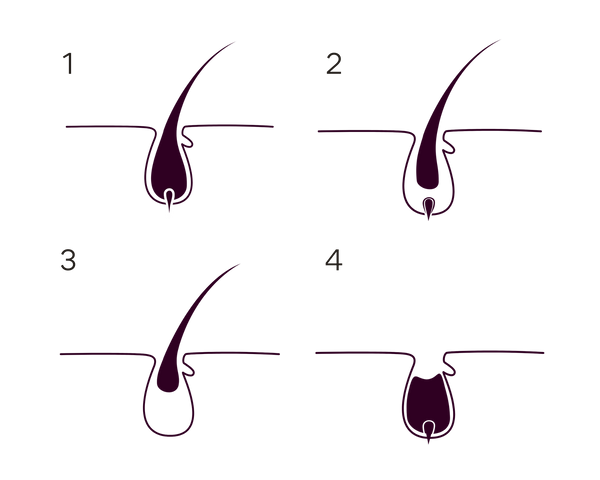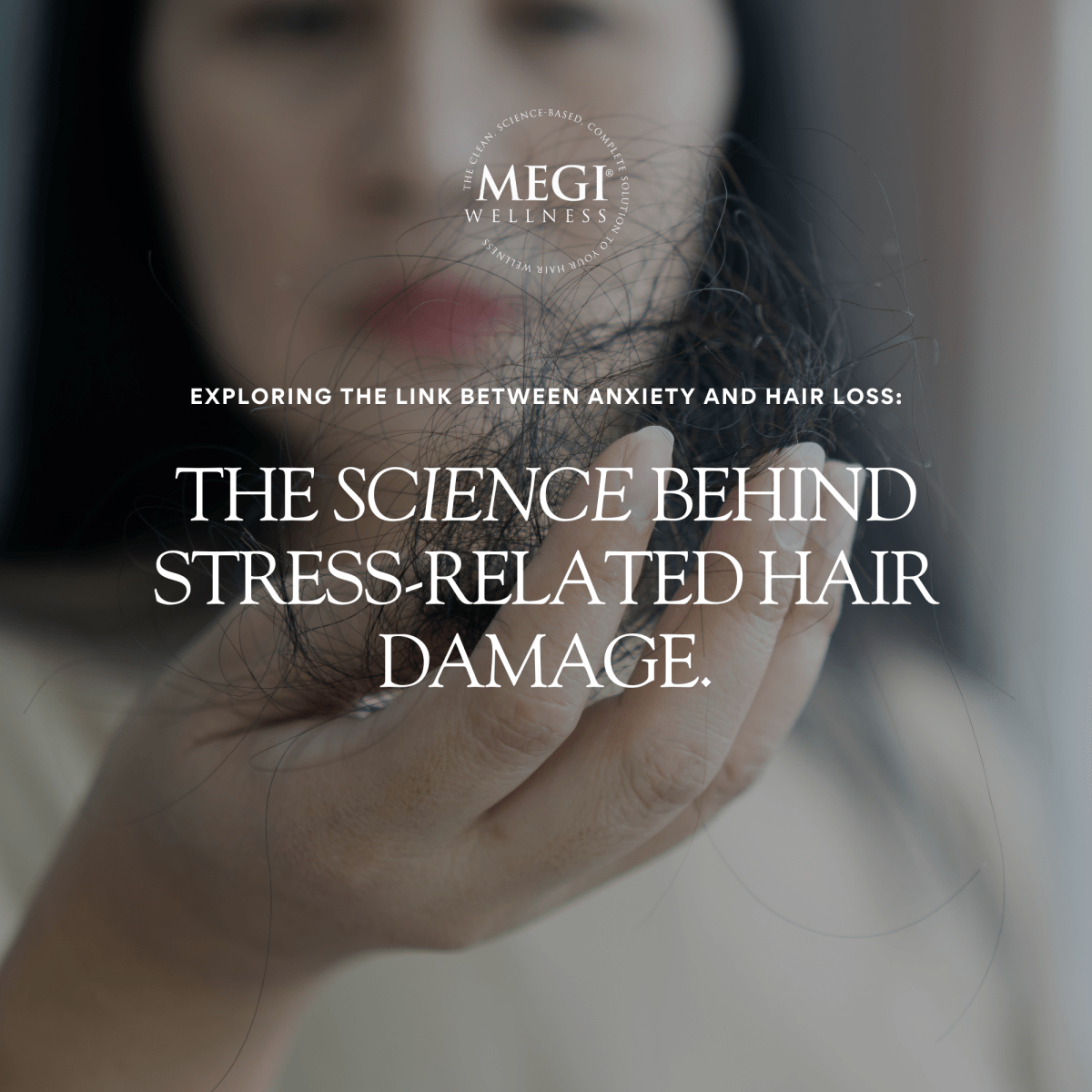The Link Between Anxiety & Hair Loss
Life is in 2024 is more fast-paced and demanding than ever. Anxiety and stress have become increasingly prevalent, especially after the Covid-19 pandemic.
While most people are familiar with the negative impact these mental health issues can have on overall well-being, it is important to recognize the potential effects they can have on physical health as well. One such consequence that often goes unnoticed is hair loss. So, let's talk about anxiety and hair loss, shedding light on how living with stress can contribute to hair damage.

Understanding Hair Growth
To comprehend the connection between anxiety and hair loss, it is essential to understand the process of hair growth. The human scalp typically houses around 100,000 to 150g,000 hair follicles, and each follicle undergoes a cycle of growth, rest, and shedding.
This cycle is known as the hair growth cycle, which consists of the 1. Anagen (growth) phase, the 2. Catagen (transition) phase, the 3. Telogen (resting) phase and 4. the Shedding Phase (Exogen).

On average, each hair strand remains in the growing phase for two to six years, followed by a resting phase of a few weeks before it sheds to make room for new hair.
Anxiety and stress disrupt the delicate balance of the hair growth cycle, potentially leading to increased hair shedding and even permanent hair loss. Stress-induced hair loss is known as telogen effluvium.
When a person experiences intense or prolonged stress, it can trigger a large number of hair follicles to enter the resting phase simultaneously, prematurely interrupting their growth cycle. This leads to excessive hair shedding, often noticeable several months after the stressful event. The exact mechanism behind stress-related hair loss is complex and multifactorial. However, researchers believe that stress hormones, particularly cortisol, play a significant role.
Elevated cortisol levels can negatively affect the hair follicles by shrinking them, restricting blood flow to the scalp, and disrupting the production of essential hair-building proteins. Additionally, stress can contribute to inflammation, disrupt the immune system, and impair the body's ability to absorb vital nutrients, all of which can further impact hair health.
Living with anxiety can also lead to certain habits that can cause direct physical damage to the hair. These habits include excessive hair pulling, twisting, or rubbing, commonly known as trichotillomania. This compulsive behaviour can lead to hair breakage or even bald patches in severe cases.
Coping Stratergies & Treatment Options
Managing anxiety effectively is crucial to prevent or minimize hair loss associated with stress. Here are some strategies that can help:
- Seek professional help: Consult a mental health professional who can assist in developing coping mechanisms, stress management techniques, and, if necessary,prescribe medication.
- Practice self-care: Engage in activities that promote relaxation and reduce stress, such as meditation, yoga, deep breathing exercises, or pursuing hobbies.
- Maintain a balanced lifestyle: Ensure a nutritious diet, regular exercise, and sufficient sleep to support overall well-being.
- Spend time with positive people — isolating yourself can make stress worse.
- Avoid hair-damaging practices: Be gentle while handling your hair, minimize heat styling, and opt for natural hairstyles to prevent additional stress on the hair shafts.
- Consider topical treatments: We would highly recommend Megi Hair Growth Serum as well as Megi Growth Stimulating Supplement.
Hair loss caused by stress is usually only temporary. If you've lost hair as a result of stress or anxiety, there's every chance it will start to grow back once your stress levels are back to normal.
The most important advice? Take it day by day. Make small changes like taking deep breaths, being patient with the process, and managing the stressors until you have a clear headspace to address them.





